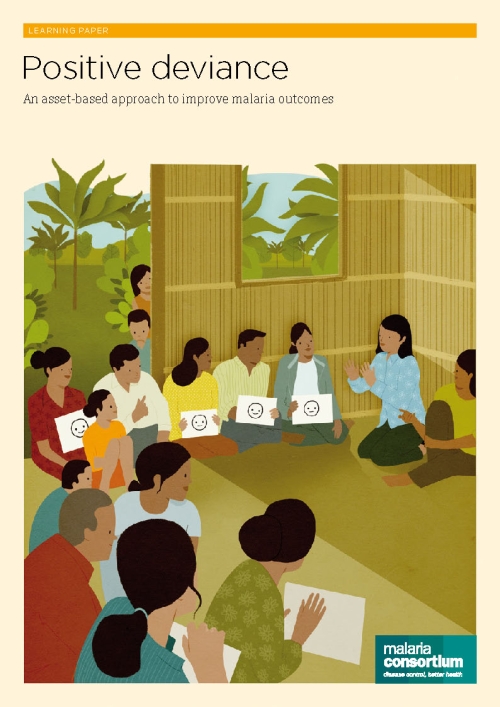
Publication Date:
24/04/2014
Author:
Malaria Consortium
Type:
Learning paper

Positive deviance: An asset-based approach to improve malaria outcomes
Publication Date:24/04/2014
Author:
Malaria Consortium
Type:
Learning paper
This learning paper describes a pilot project in north-west Cambodia that used positive deviance as a method of behaviour change communication for malaria control. Positive deviance is a behaviour and social change approach that helps identify existing model behaviours within a community that can be shared and amplified by the rest of the community. The project discussed in this learning paper focused on mobile and migrant workers and resident communities in three villages in Simpov Loun, north-west Cambodia.
The positive deviance project involved selecting role models from within the community who practised uncommon but positive behaviour with regards to malaria prevention and control. These role models then worked within the community to show other individuals and families how they could act in similar ways, in order to improve malaria prevention and enhance malaria treatment.
The paper looks closely at what this project involved, discusses what worked well, what lessons were learned and the challenges met during the period it was running. A range of recommendations, covering many different aspects of positive deviance and malaria, has come out of this project and are provided for future malaria control work using positive deviance.
Citation: Shafique, M and George, S (2014) Positive deviance: An asset-based approach to improve malaria outcomes www.malariaconsortium.org/learningpapers
Country: Cambodia
Keywords: Malaria | Resistance management
« Back to Publications